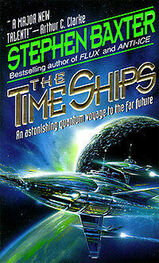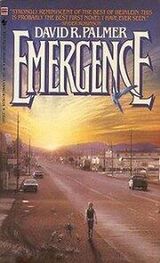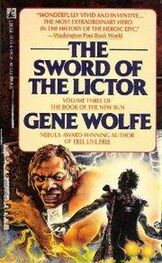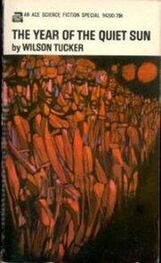Sylva
by Vercors (Jean Bruller)
MY name is Richwick, and if I answer to the Christian name of Albert it is out of pure courtesy, for I hate Albert and would have liked to be called Bruce. Anybody can look up my birth certificate at Somerset House in London, in the register for 1892, a leap year, under the date February 29th. I am giving these particulars to enable the incredulous to assure themselves, if they wish, of my existence.
I was born in Richwick Manor and my paternal grandmother brought me up, both my parents having died in a hunting accident deep in the Ardennes forest, where they had been invited by the Baron Antoine van Werpen (a near relation, as everyone knows, of the Dutch royal family) . My mother, who was born in Antwerp, was a second cousin of the Baron, whom my father used to supply with stock-bred—i.e. semiwild—foxes. People have often attributed to this Belgian ancestry certain apparently Continental traits in my character, such as—according to my friends—an immoderate liking for statements of principle and for Byzantine arguments. After the death of my parents the stock breeding was abandoned, and my grandmother had the fences pulled down and the animals scattered. I grew up with her in the manor house, a lonely old place isolated from the world, in the midst of fields and woods. When I was old enough to ride to hounds, she passed away, and with her dying breath she made me swear that I would never hunt. I gladly complied, for the stories she had told me together with my parents’ death had left me with a loathing for this bloody sport. My principal pastime, therefore, apart from my work—I manage the farm—was reading.
Ever since childhood I have lived among books. They have formed my character. As far as one can know oneself, I would describe myself thus: I am a good Christian, though doubtless from habit, since my faith lacks vigor. From what I have read I have not gained a high opinion of mankind, despite its supposed mental powers. It shuns stern truths and welcomes flattering errors. The prophets were only human, so how can I be sure that they did not err in interpreting their divine revelations? Nor do I trust churches and men of the cloth any more than philosophers and scholars. Only one artifact seems to me to deserve adherence, and that is the least reasoned and humblest one, yet also the oldest and most enduring: tradition. And with tradition, decorum; and with them religion; and that is why, even without much belief in its dogmas, I do remain faithful to it. It makes for a gentler, easier life among men. It eschews violence. One cannot ask for more, I am sure.
I believe this more than ever since the strange experience which befell me and which I propose to set down today, though not for public consumption. Indeed, I have decided to let three decades pass before publishing these pages—a precaution prompted by elementary prudence. People will only believe in miracles consecrated by the Scriptures; they will refuse to admit a single one, even though it happen under their very eyes, unless it is vouched for by the authorities which they themselves have established.
It must not be inferred from this remark that I have some foolish leaning toward anticonformism. No, on the contrary: I think the existing state of society quite right and proper. I have intimated what great store I set by law and order, and if free thought became too widespread these would soon disappear.
And yet, what I have to tell is definitely a miracle, even though nobody will believe it. There might ensue, were I to publish this tale too soon, a number of unpleasant investigations into a certain person on the pretext of exposing me and my fantasies. In thirty years’ time it will be too late for such prying, and though the world will probably not believe me any more than now, the practical inconveniences of its disbelief will have disappeared, I hope, by 1962. Meanwhile, it is 1925, and I am thirty-three years old. Only last year I was still a confirmed bachelor, with occasional vague thoughts of marriage as I wearied of the short-lived involvements in which I became entangled, and as quickly disentangled, in London where I used to spend the winter months, at least whenever the farm could spare me. I toyed with the idea of marriage without much eagerness, I confess. One Monday in September, as I sat, a little bored, in the train that was taking me back to Wardley, I foraged in my suitcase full of books—I always bring back plenty of new ones from the bookshops around Charing Cross Road—and chose one by David Garnett that friends had recently mentioned with favor, praising its attractive and subtle humor. I was disappointed. That a young woman turns into a fox under the eyes of her poor husband was an amusing idea, and I accepted it with amusement. But the subsequent slow transformation of a well-bred lady into a wild beast seemed to me tedious and lacking in force and interest. I had, not long before, read Kafka’s Metamorphosis , just published in German. What a difference! [1] I am wondering today, more than thirty years after, if I have not inverted the order in which I read these books. It is of no consequence, however. What is remarkable is that a prodigy of the same kind should be at the root of such widely different stories, one by a Czech, the other by an Englishman.
As can be seen, my feelings did not differ from what was, in fact, the fairly general literal judgment. The idea of taking this improbable story seriously, or rather literally, could hardly have come to a man of sound mind. It was not a long story; I had finished it by the time the train pulled into Wardley Station. I stuffed the book into my suitcase and promptly forgot it.
I swear the story never once crossed my mind again until one evening in the autumn when I was both witness and object of a similar adventure, though in reverse. I mention this to make it quite clear that neither imagination nor autosuggestion nor memory can have played any part in it. Garnett feels obliged to bolster up his story with all sorts of precautions and furthermore with a dozen trustworthy witnesses. Whereas I, for my part, cannot produce a single one, for a good reason. The reader must simply take my word for it.
Still, just as he can check up on my existence at the local registrar’s, so he can, if he likes, check the registers for the whole of England without finding any Sylva Richwick. Though everyone in the village has seen the girl out walking in my company many times, it is within the power of the most hardened skeptic to verify that, legally, she did not exist. I can provide no other evidence.
So, to the point.
The date is October 16, 1924. Dusk is falling, it is five o’clock. As usual, whenever the weather is fine, I am taking a walk in the woods of Richwick Manor, which once belonged to the family but had to be sold to pay estate expenses. I had reserved for myself the right to walk in it, though I was unable to prevent the land I had sold from being thrown open to hunting: there are still some stag there and a number of foxes, survivors of the past.
This evening I am walking alone—I always walk alone, but this evening, I don’t know why, the rustle of the leaves under my boots exacerbates my loneliness. Can it be that it is beginning to weigh on me? And yet, I could continue to walk untiringly if the last light of day were not fading fast. I am strolling slowly back toward the house, its calm and comfort already beckoning as I inhale the scent of moss and mushrooms. No, this lonely life does not weigh on me, I still love it as much as ever. I am happy, peaceful, infinitely calm.
I emerge from the woods. Another few hundred yards through the fields, a fence to cross, and I’ll be home. Just then I hear, from quite far off in the forest, the baying of a pack of hounds.
Читать дальше






